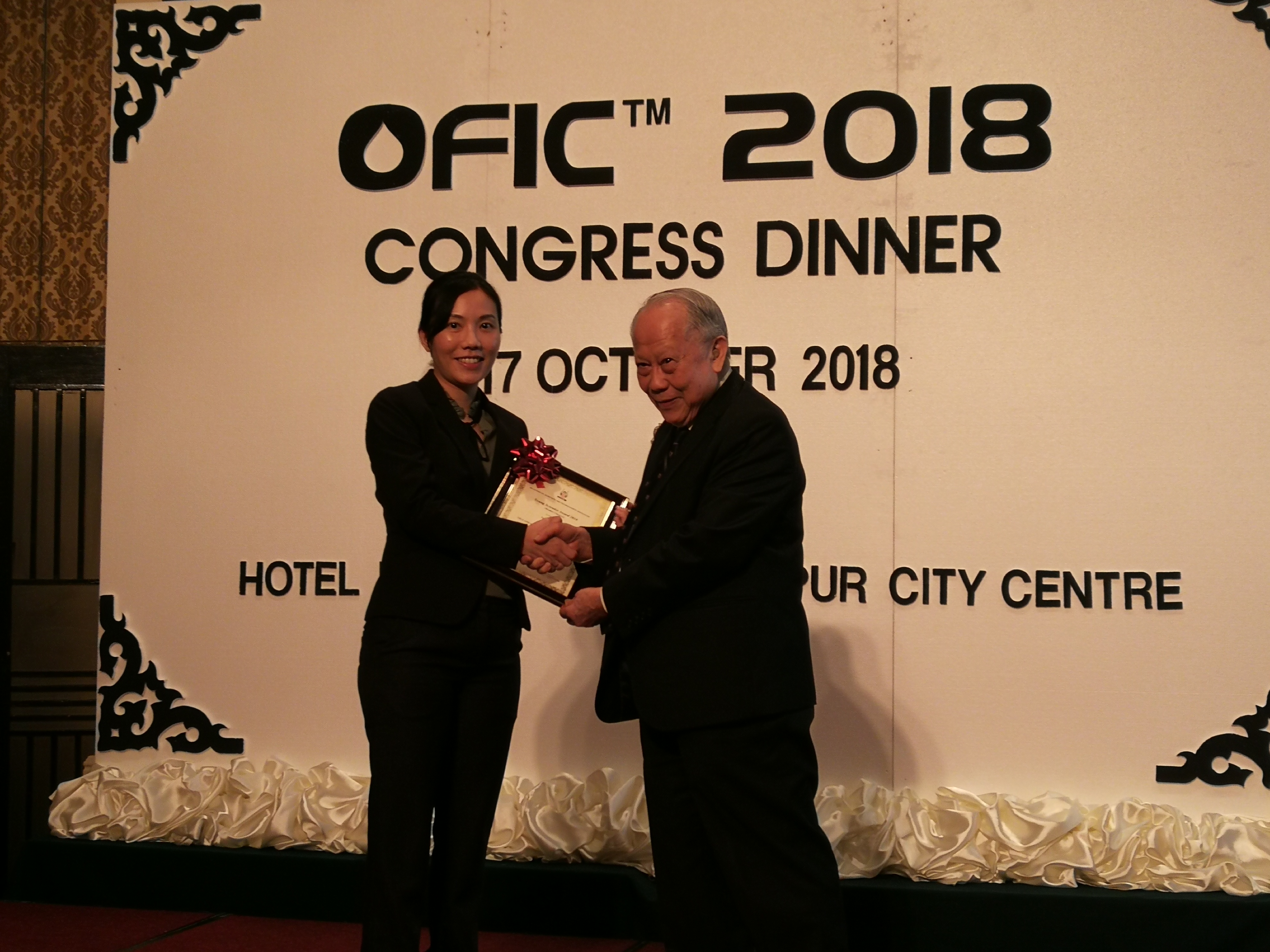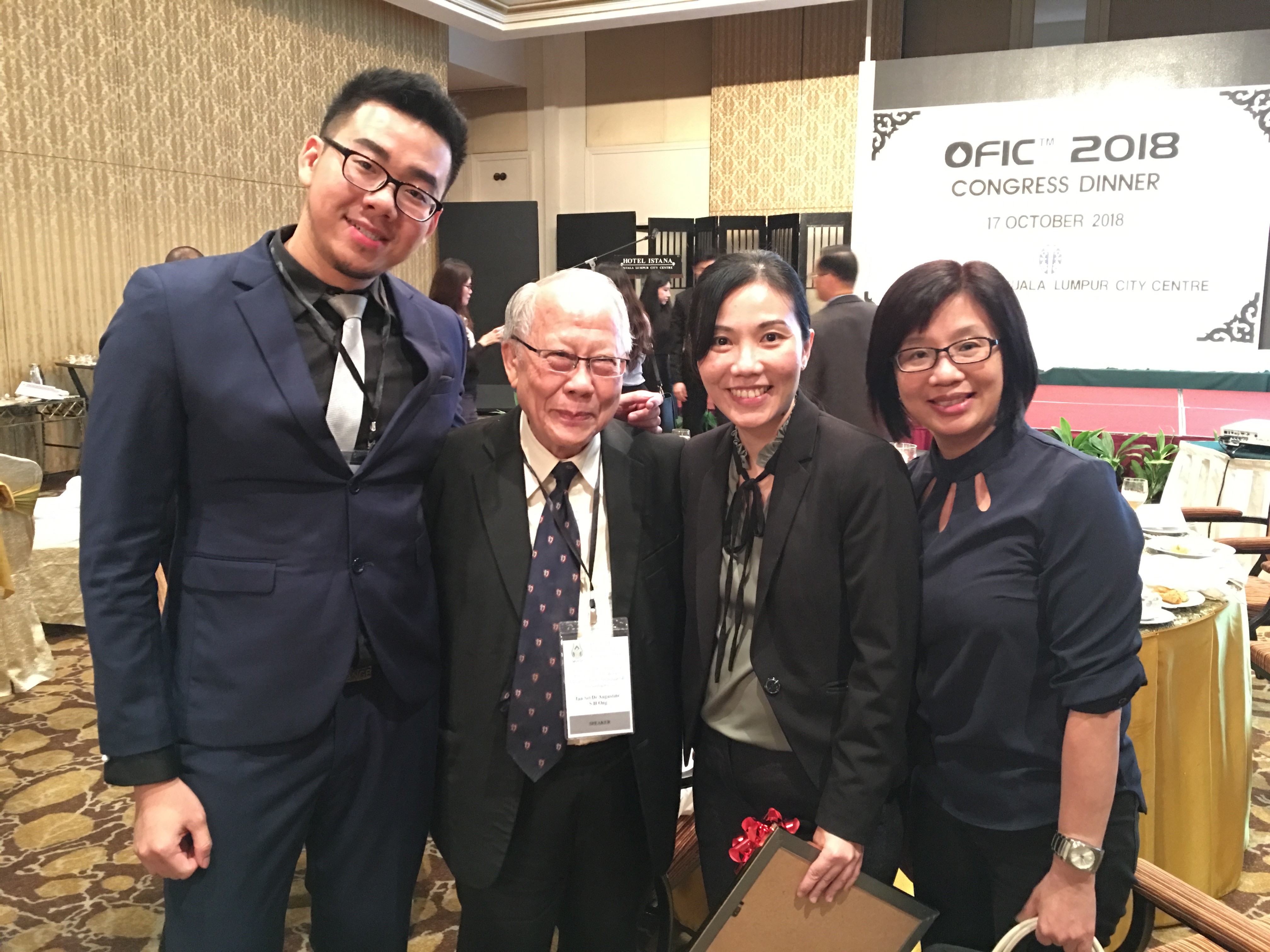17 October 2018 – Head of Pharmaceutical Chemistry Department in IMU‘s School of Pharmacy, Dr Lee Choy Sin, was awarded the prestigious Malaysian Oil Scientists’ and Technologists’ Association (MOSTA) Young Scientist Award 2018. This award was established to recognise pioneering achievements in the research and development in oil and fats. It is awarded once in every two years in conjunction with the Oils and Fats International Congress (OFIC). Dr Lee Choy Sin has 15 years of research experience in the synthesis of green polymers from renewable resources, especially palm oil for pharmaceutical, biomedical and industrial applications.

| Some of her major achievements include |
|---|
| Securing a total of six external research grants (RM 473 K) |
| Won Silver Medal (Category: Materials) at International Invention, Innovation & Technology Exhibition (ITEX) 2017 |
| Filed 2 patents in Malaysia and regional countries (Singapore, Thailand, Indonesia and Vietnam) |
| Published 19 scientific papers in ISI-indexed Q1 & Q2 journals. |

When asked about oleochemicals and its potential, Dr Lee shared that “Oleochemicals are chemicals derived from oils and fats. It has been popularised as a substitute of petrochemicals in various industrial applications owing to the detrimental factors caused by petrochemical production, such as generation of hazardous solid wastes, greenhouse gas emission and eco-destruction. Polymers derived from renewable resources have gained worldwide recognition due to the health, safety and environment concerns. In Malaysia, the transformation of agriculture-based economy to an industrial-based economy acted as driving force to the growth of downstream oleochemical industries. Chemical modification of the reactive sites of the vegetable oil turns the oil into a variety of functional monomers for the polymer industry. The biodegradability of the vegetable oils gives advantage to the development of green polymers. The safety concerns of the oleochemicals derived products are also potentially more reliable.”
In addition to that, Dr Lee commented that “Biocompatible and functional polymeric material for medical and biomedical applications is highly sought after, hence the move of diversifying the applications of oleo-based polymers in providing solutions to pharmaceutical and medical industries is prospective. Our research interests include producing oleo-based polymers as polymer carrier for poorly water-soluble drugs, as biocompatible and biodegradable polymeric materials for tissue engineering and medical devices and as reactant for antimicrobial polymeric protective coatings.”









